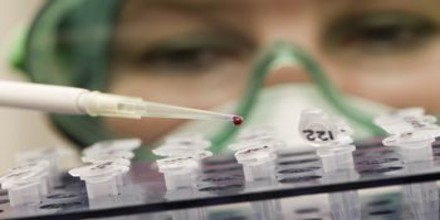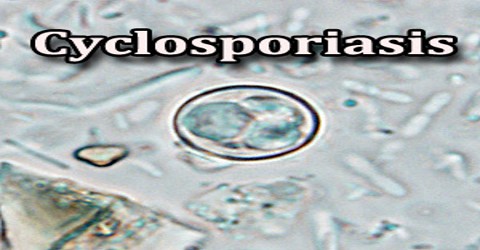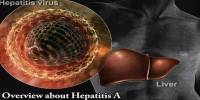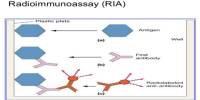Cyclosporiasis
Definition
Cyclosporiasis (or Cyclospora Infection) is an intestinal illness caused by the microscopic parasite Cyclospora cayetanensis. It refers to infection by the sporeforming protozoan known as Cyclospora. Cyclospora is a parasite composed of one cell, too small to be seen without a microscope. The organism was previously thought to be a blue-green alga or a large form of Cryptosporidium. Cyclospora cayetanensis is the only species of this organism found in humans.

People can become infected with Cyclospora by consuming food or water contaminated with the parasite. People living or traveling in countries where cyclosporiasis is endemic may be at increased risk for infection.
Cyclospora infection causes watery, and sometimes explosive, diarrhea. The one-celled parasite that causes cyclospora infection can enter your body when you ingest contaminated food or water. Fresh produce is the culprit in many cases of cyclospora infection. Because diarrhea can be caused by many things, it can be difficult to diagnose cyclospora infection unless a specialized stool test is done. Treatment for cyclospora infection is antibiotics. Food safety precautions may help prevent the disease.

Risks of Cyclospora Infection
Cyclospora has been associated with a variety of chronic complications such as Guillain-Barre syndrome, reactive arthritis or Reiter’s syndrome, biliary disease, and acalculous cholecystitis. Since Cyclospora infections tend to respond to the appropriate treatment, complications are more likely to occur in individuals who are not treated or not treated promptly. Extraintestinal infection also appears to occur more commonly in individuals with a compromised immune system.
Causes, Sign and Symptoms of Cyclosporiasis (Cyclospora Infection)
A one-celled parasite, Cyclospora cayetanensis, causes cyclospora infection. A person infected with cyclospora passes the parasite in stool. However, unlike some other foodborne parasites, cyclospora doesn’t become infectious until days or weeks after it’s passed in a bowel movement.
Before the 1990s, sporadic cases of cyclospora infection turned up only in people who traveled in developing countries and in those with HIV or another condition that caused a weakened immune system. However, since the 1990s, lettuce, fresh basil and imported raspberries have been implicated in cyclospora outbreaks in the United States and Canada.

Some people infected with the microscopic parasite that causes cyclospora infection develop no signs or symptoms. For others, signs and symptoms, which usually begin within two to 11 days of eating contaminated food or drinking contaminated water may include:
- Frequent, watery diarrhea
- Bouts of diarrhea alternating with bouts of constipation
- Loss of appetite and weight loss
- Bloating, flatulence and burping
- Stomach cramps
- Nausea and vomiting
- Muscle aches
- Fever
- Fatigue – this symptom may last long after the active infection has gotten better
- General feeling of unwellness (malaise)
The diarrhea may end by itself within a few days, or it may last for weeks.

Diagnosis, Treatment and Prevention
The disease should be suspected in anyone with a history of prolonged or recurrent diarrhea. The parasite is identified either by staining stool specimens or by applying certain fluorescent ultraviolet techniques to find the characteristic cysts. Biopsy of an infected organ such as the intestine through an endoscope is another way to make the diagnosis.
The recommended treatment for infection with Cyclospora is a combination of two antibiotics, trimethoprim-sulfamethoxazole, also known as Bactrim, Septra, or Cotrim. People who have diarrhea should rest and drink plenty of fluids. No alternative drugs have been identified yet for people with Cyclospora infection who are unable to take sulfa drugs. Some experimental studies, however, have suggested that ciprofloxacin or nitazoxanide may be effective, although to a lesser degree than trimethoprim-sulfamethoxazole.

The use of the medication, trimethoprim-sulfamethoxazole (Bactrim) for one week can be successful in treating intestinal infections and prevents relapse in those with a normal immune system. The same medicine can be prescribed to treat infections of both the intestine and bile ducts in immunocompromised individuals, but maintenance or continuous treatment is often needed.
Aside from a waterborne source as the origin of infection, little else is known about how the parasite is transmitted. Therefore, little can be done regarding prevention, except to maintain proper hand washing techniques and hygiene.
















